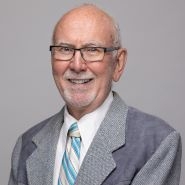In the most important Federal Circuit interference opinion in many years, the majority of a three-judge panel of the Federal Circuit approved (or, at least, did not reject) the Trial Section’s two-way test for interfering subject matter. Eli Lilly & Co., v. Board of Regents of the University of Washington, ____ F.3d ____, 67 USPQ2d 1161 (Fed. Cir. 2003) (opinion of the panel delivered by Circuit Judge Garjarsa and joined by Circuit Judge Michel; dissenting opinion delivered by Circuit Judge Lourie). However, the losing interferent (Eli Lilly) has sought reconsideration in banc, the court has granted an extension of time for the submission of amicus briefs supporting the request for reconsideration in banc, and several amici have supported that request. Accordingly, there is some hope either that the majority on the original panel will reverse itself or that the entire court, sitting in banc, will do that for them. This article is primarily policy-based, explaining what I think are the socially unproductive consequences of the majority’s decision, rather than precedent-based. That is because there is only one really significant precedent (i.e., the BPAI’s opinion enunciating the two-way test), and that precedent is not binding on the Federal Circuit.
Resources










 Counseling & Strategic Advice
Counseling & Strategic Advice IP Transactions
IP Transactions Litigation
Litigation PTAB Proceedings
PTAB Proceedings Start-Up
Start-Up Technology Transfer
Technology Transfer Trademark & Designs
Trademark & Designs U.S. Patent Procurement (Application Drafting & Prosecution)
U.S. Patent Procurement (Application Drafting & Prosecution)








